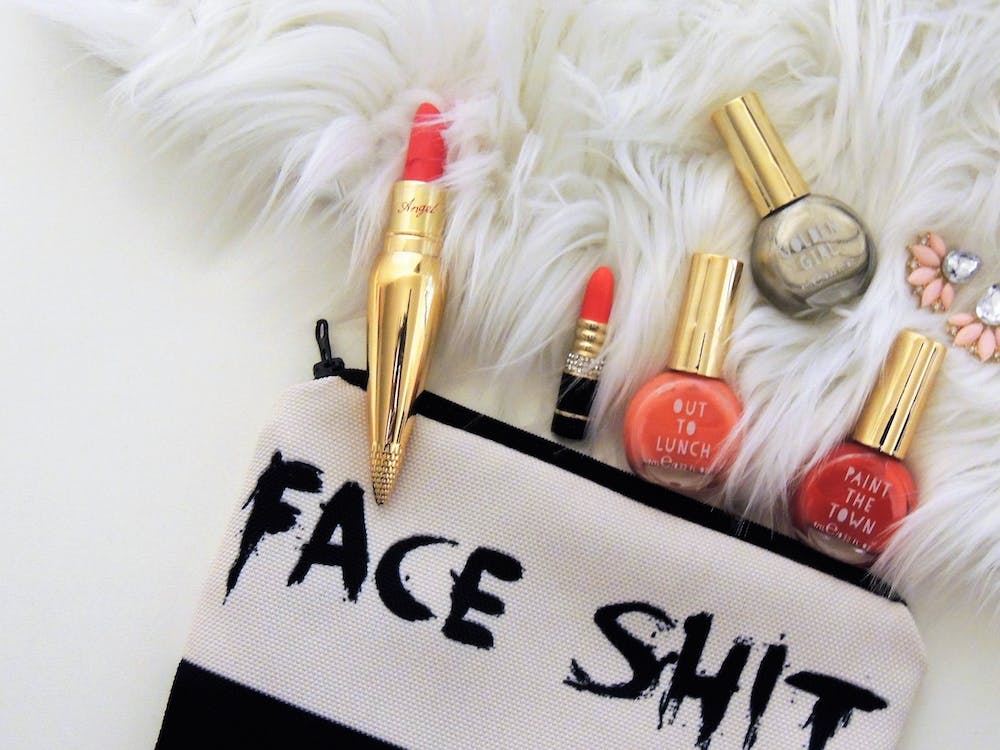There’s no straightforward path to business success. And you must understand that all your hard work in creating your beauty brand can get undone by a single blunder, particularly one involving your chosen business name.
Choosing a bad brand name is undoubtedly one of the most destructive things you can do to your beauty business.
This is because your company name shapes and influences your brand’s personality. As a result, it’s critical that your business’s name accurately represents your firm’s ideals. The good news is that coming up with a catchy name for your company is much easier nowadays. Countless beauty-preneur have used brand name generators, brainstormed, or hired a naming agency to discover a good brand name for business and products.
However, whatever naming technique you use, be cautious and avoid the following naming errors that can damage your company’s reputation.
1. Using Business Names That Can be Easily Taken Out of Context
It’s not a secret that if a company shares the same political, cultural, and environmental beliefs as its target clients, its sales will skyrocket. That’s because the ordinary customer has strong feelings about certain sensitive issues and is more inclined to support a beauty firm that shares those values.
However, suppose your beauty firm, like Gillette, focuses on these concerns through its marketing or messaging. In that situation, you’ll eventually exclude a sizable section of your audience since individuals who reject the underlying cause you’re promoting will be less likely to buy your products or utilize your services.
If you follow in the footsteps of Urban Decay’s ‘Druggie’ or Eskimo Pie—which was eventually changed to Edy’s Pie since its former name had unpleasant racial undertones—it will be devastating for your small brand. Such contentious names will only elicit an adverse reaction from customers.
2. Using Complex Brand Names

Customers looking for apparel and beauty items online are more drawn to a brand like ShoeStores—a very simple brand name—rather than firms with difficult names like Aeropostale and Euymhod.
Customers will have no idea that Aeropostale and Euymhod sell clothing. Not to mention how difficult these names are for people to pronounce or remember while looking online.
And, if a sizable chunk of your consumers struggles to recall your company’s name, you can be sure that there’s a good possibility they won’t even recommend it to their friends and relatives.
That said, while naming, make it your ultimate goal to find short, distinctive, and engaging fashion and cosmetics brand name ideas that resonate with your brand because 80% of shoppers forget about branded materials within three days.
Even if you’ve made up your mind on using a long name, consider reducing it to something like H&M, EOS, IBM, and 3M. It’s no secret in marketing that short, simple names will generally catch your clients’ attention faster than long, complex ones.
New companies need to pay more attention to the significance of selecting a unique company name. Brands such as Amazon, Apple, and Gucci have effectively established themselves in the minds of consumers by leveraging their distinctive names.
3. Using a Name With Strange Meanings in a Foreign Language
Having a strong online presence for your company allows clients from all around the world to contact and interact with your brand. Having a worldwide identity, however, has drawbacks.
One of these drawbacks arises when you select a brand name that has an unexpected connotation in the local language of the market you are attempting to join.
It gets worse if your beauty brand’s name means something distasteful in the local language of your target market. Take it from us; potential customers would be hesitant to try your goods or services.
And if you want your brand to create a lasting impact on your clients, you need memorable and easy-to-say names. Even the most complex and meaningful names pale in comparison to how welcoming a simple name sounds.
In the same way that any English speaker would be hesitant to try Pee Cola, two well-known products, the Mazda Laputa and the Nokia Lumia were rejected by Spanish-speaking clients because their brand names, unfortunately, translated to ‘prostitute’ in Spanish.
As a business owner, don’t restrict your linguistic research to just one language while naming. Make sure you select a brand name only after completing a thorough examination of the primary languages in the sector you want to enter and the top global languages.
Doing this will help you ascertain that your chosen name will be well-liked by your worldwide clientele.
Set Your Clients’ Needs First
At this point, it may seem trite, but most business owners get so focused on generating a profit that they lose sight of the reality that their company’s primary goal is to serve their target market. That’s why you must prioritize your client’s demands and desires as much as feasible.
Profit-driven businesses quickly lose consumers because no one wants to engage with a firm they perceive is not interested in finding innovative and unique solutions to their challenges.
The best way to position your brand is to select a well-researched name that has good connotations in the language of your target clients and is easy to say and discover online. If you choose a great name, you won’t have to rebrand your company after a few years. Grant Polachek is the head of branding for Squadhelp.com, 3X Inc 5000 startup and disruptive naming agency. Squadhelp has reviewed more than 1 million names and curated a collection of the best available names on the web today. We are also the world’s leading crowdsource naming platform, supporting clients from early-stage startups to Fortune 500 companies.
SPONSORED CONTENT











